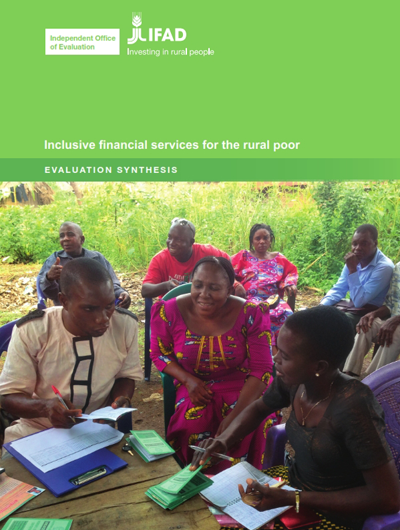Inclusive financial services for the rural poor - IOE

Inclusive financial services for the rural poor
Access to financial services is essential to lift people out of poverty as it allows them to seize economic opportunities and increase their welfare. It is seen as an important component of the inclusive rural transformation agenda of IFAD, which, since 1981, has financed over 1,000 projects, worth US$3.4 billion.
The Independent Office of Evaluation (IOE) has prepared an evaluation synthesis report on IFAD’s Inclusive Financial Services for the Rural Poor. The evaluation synthesis draws information from evaluations undertaken between 2008 and 2017.
In 2007, IOE conducted a corporate-level evaluation of rural finance in IFAD, which paved the way for a new Rural Finance Policy that was introduced in 2009. The synthesis found that the mix of financial instruments in the portfolio has not changed since 2009. Loan guarantee funds, lines of credit and matching grants are overly represented in the mix. Projects still tend to use traditional financial services, mainly savings and borrowing. New types of services promoted by IFAD, such as leasing, insurance, warehouse receipts and value-chain financing, were rarely used or, when included at the design stage, they were found less feasible during implementation. The transition to new types of financial services requires significant investments in technical assistance, market studies and capacity, for which governments were often hesitant to use loan funds. The availability of qualified financial services, their capacity and their presence in rural areas were the main factors determining IFAD's approach on the ground.
The principles of the revised Rural Finance Policy emphasize the need to move towards market-led and demand-oriented approaches, offering a diverse set of services and products. While the diversity of instruments, services and products has increased, they have been offered within traditional supply-led approaches, leading to a lack of demand orientation on the part of country interventions. A key related issue is in the weak implementation capacity on the ground. These issues must be addressed for IFAD to remain relevant and be in demand as an Inclusive Financial Services player.